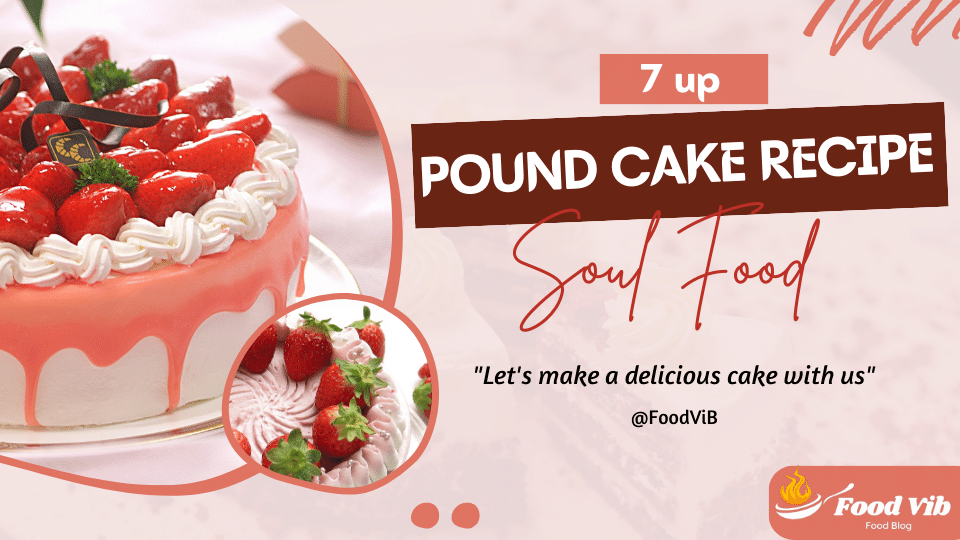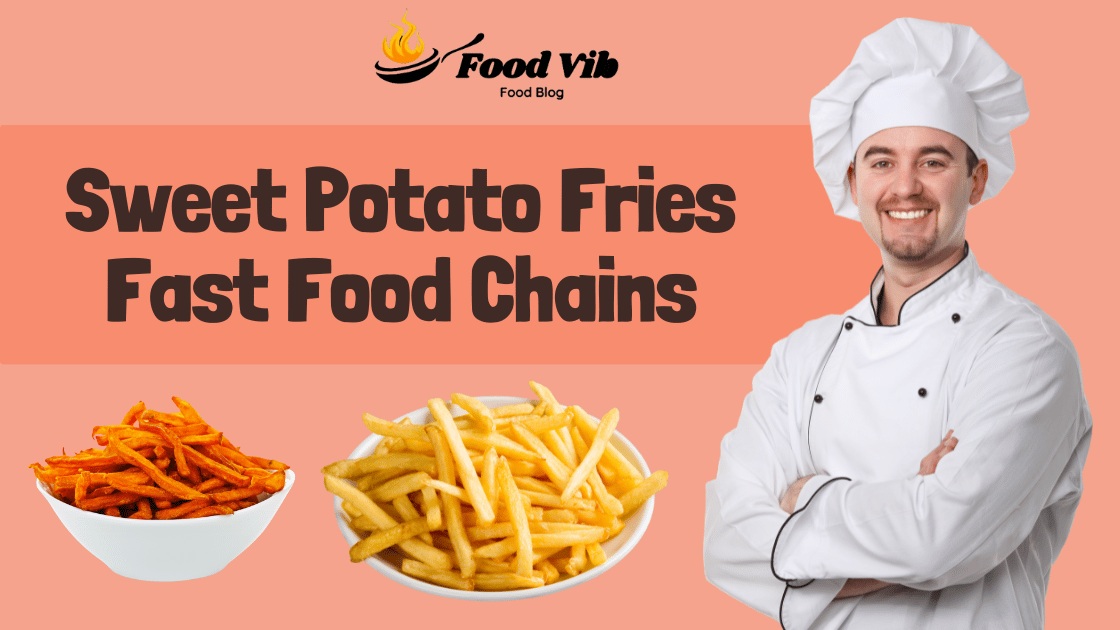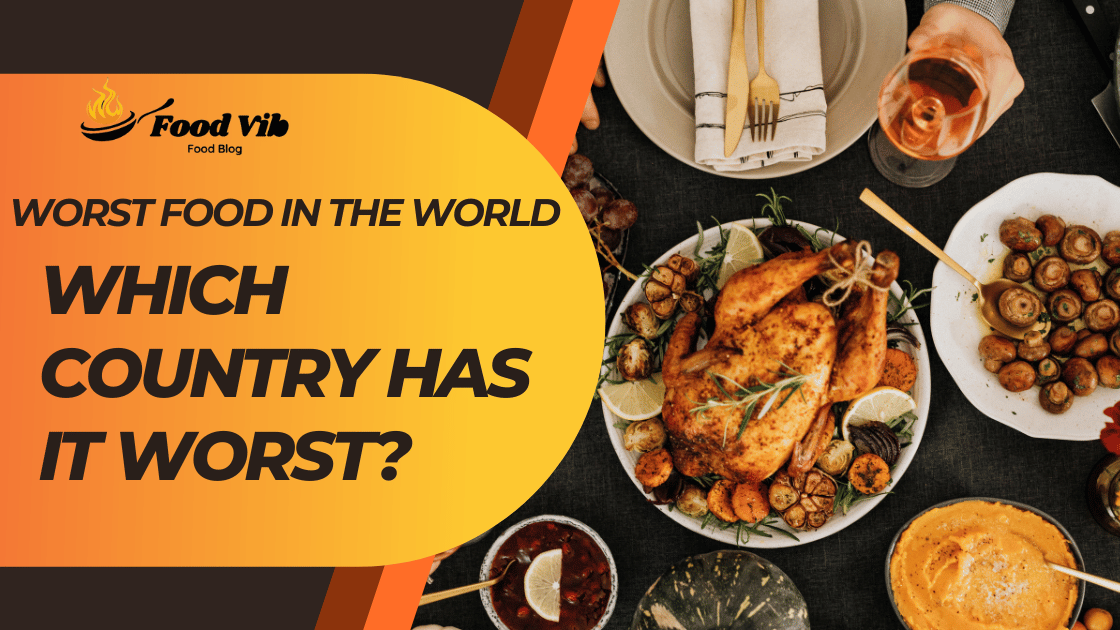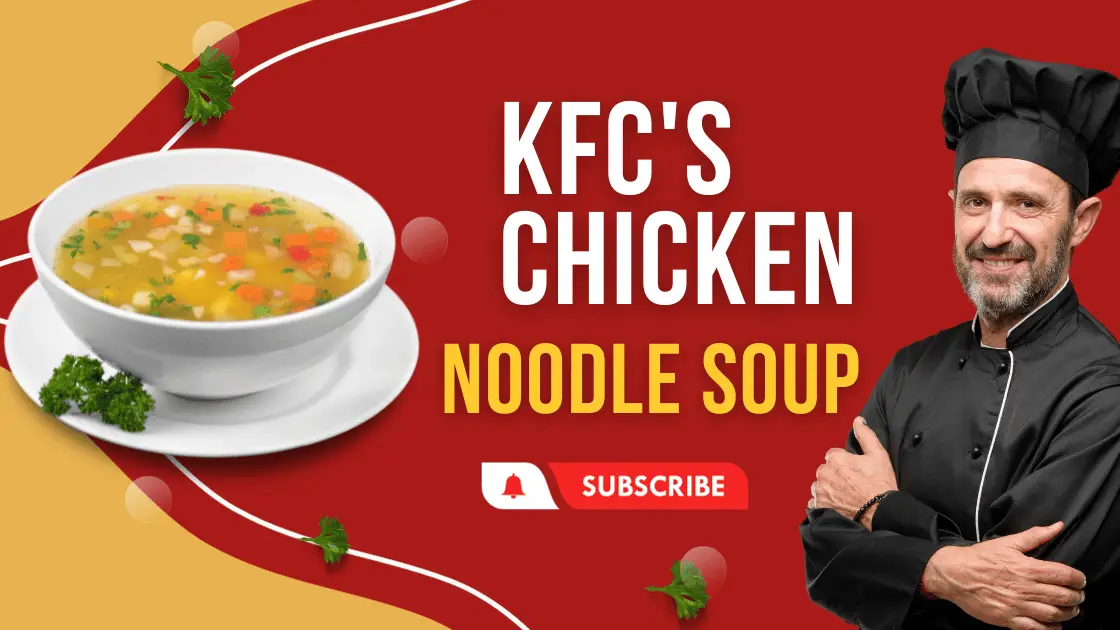Why Does Spicy Food Make You Hiccup
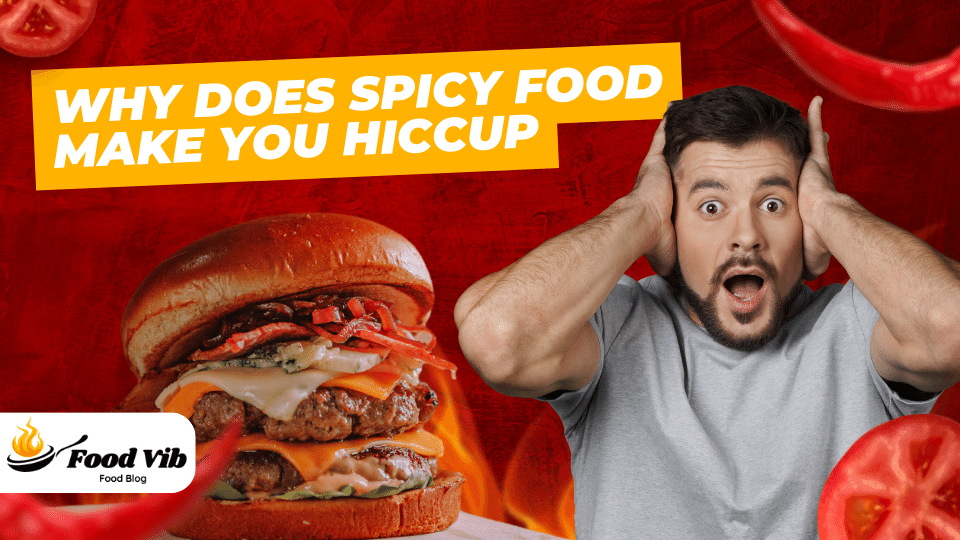
The phenomenon of hiccups generated by spicy food is a strange and sometimes baffling experience for many. Spicy foods include chemicals such as capsaicin, which activate receptors in the mouth and throat, prompting a range of physiological reactions. One such reaction is the discomfort of the diaphragm, the muscle responsible for breathing.
This discomfort may rise to spasms in the diaphragm, resulting in the typical hiccup sound. While the specific mechanism underlying this reaction is not entirely known, the link between spicy food and hiccups underlines the complicated connections between flavor, experience, and physical reactions.

Why Does Spicy Food Make You Hiccup
Welcome to our in-depth investigation of a unique culinary phenomenon: the hiccup-inducing impact of spicy dishes. As ardent food fans and seekers of information, we’re here to analyze the science behind this unusual response, giving insight into why spicy foods occasionally lead to unexpected hiccups.
What Makes Food Spicy?
Before going into the hiccup-spice relationship, it’s vital to understand what gives some dishes their spicy bite. The major component responsible for spiciness is capsaicin, a natural chemical present in chili peppers. When swallowed, capsaicin interacts with sensory receptors in the mouth, notably the TRPV1 receptors, generating a sense of heat or spiciness.
The Biology of Hiccups
What Causes Hiccups?
Hiccups, medically known as singultus, occur when the diaphragm, a sheet of muscle dividing the chest cavity from the abdomen, contracts involuntarily. This abrupt contraction is followed by the fast closing of the vocal cords, resulting in the distinctive “hic” sound.
The Spicy Food-Hiccup Connection
a. Capsaicin and Nerve Stimulation
When we ingest spicy meals containing capsaicin, this molecule activates the vagus nerve, a major actor in the autonomic nervous system responsible for several body activities, including digestion. The vagus nerve links the brain to the stomach and has a function in controlling the contraction of the diaphragm.
b. Irritation and Reflex Response
The stimulation of the vagus nerve by capsaicin may occasionally lead to discomfort or overstimulation, producing a reflex reaction that shows as hiccups. This tendency is especially prominent in persons with heightened sensitivity to spicy meals or those eating excessively hot cuisine.
Individual Variations
a. Sensitivity to Capsaicin
It’s worth mentioning that not everyone has hiccups after ingesting spicy meals. Individual variations in sensitivity to capsaicin, as well as variances in gastrointestinal and neurological reactions, might determine whether a person is prone to hiccupping in such settings.
b. Other Factors
Additionally, additional variables such as eating speed, hydration levels, and gastric distension may contribute to the chance of getting hiccups after eating spicy meals. For example, eating hastily or ingesting big amounts of spicy food without appropriate fluids might worsen the activation of the vagus nerve, increasing the likelihood of hiccup development.
Coping Strategies
Managing Hiccups
While hiccups generated by spicy meals are normally safe and transitory, they may be annoying for certain people. Fortunately, numerous measures may help ease or avoid hiccups:
- Slow Eating: Consuming spicy meals at a slower pace might lessen the probability of overstimulating the vagus nerve.
- Hydration: Staying hydrated before and during meals might help neutralize the effects of capsaicin and decrease discomfort.
- Breathing Exercises: Practicing deep breathing exercises will help relax the diaphragm and relieve hiccups.
- Distraction Techniques: Engaging in distracting activities or concentrating on anything other than the hiccups may occasionally break the reflex cycle.
The hiccup-inducing impact of spicy meals may be traced to the interplay between capsaicin, the vagus nerve, and the reflex processes directing diaphragm contraction. While not everyone suffers hiccups after drinking spicy foods, individual sensitivity and numerous physiological variables play a part in determining susceptibility.
Understanding the underlying processes behind this phenomenon might help people make educated decisions about their culinary preferences and utilize effective ways to minimize hiccups when they arise.
Must Read: Best Comfort Food When You’re Sick
How Can I Stop Hiccuping After Eating Spicy Food?
Hiccuping after indulging in spicy culinary delights may be a painful and frustrating experience for many. The hot taste of spicy food mixed with the spontaneous spasms of the diaphragm might lead to chronic hiccups. In this detailed article, we dig into the reasons for post-spicy meal hiccuping and examine numerous therapies and lifestyle tweaks to help you find relief.
Understanding Hiccuping
Hiccups are involuntary spasms of the diaphragm, followed by rapid closure of the vocal cords, resulting in the distinctive “hic” sound. While the specific etiology of hiccups remains mysterious, they are generally caused by irritation or stimulation of the nerves that govern the diaphragm. Consuming spicy food, with its high quantities of capsaicin, might irritate the esophagus and stomach lining, resulting in hiccups in sensitive people.
Effects of Spicy Food on Digestion
Spicy food includes substances like capsaicin, which increases the formation of gastric acid and may irritate the stomach lining. This discomfort might prompt the diaphragm to contract involuntarily, resulting in hiccups. Additionally, spicy food may worsen acid reflux, further irritating the esophagus and adding to hiccuping episodes.
Common Remedies for Hiccuping
1. Holding Your Breath Technique
One traditional cure for hiccuping includes holding your breath for as long as possible, enabling the diaphragm to relax and reset. To attempt this method, take a deep breath and hold it for 10-20 seconds, then exhale gently.
2. Drinking Water Upside Down
Drinking water upside down is another traditional cure for hiccups. This approach includes bending forward and sipping water from the other side of the glass, which may assist activate the vagus nerve and prevent the hiccup reflex.
3. Swallowing a Teaspoon of Sugar
Consuming a teaspoon of granulated sugar is thought to block the nerve impulses responsible for hiccups, offering temporary relief. The sweetness of the sugar may also assist in distracting from the pain of hiccuping.
4. Medical Perspective
While minor hiccups after eating spicy food are normally safe, chronic or severe hiccups may suggest an underlying medical concern. Gastroesophageal reflux disease (GERD), gastritis, or nerve injury might be significant reasons. Consult a healthcare practitioner if you encounter frequent or extended hiccuping episodes.
5. Lifestyle Adjustments
Making modest lifestyle improvements might help lessen the frequency of post-spicy meal hiccups. Eating smaller, more frequent meals, avoiding hot foods close to sleep, and using stress-reducing practices like meditation or yoga might lessen the likelihood of hiccups.
6. Dietary Modifications
If spicy food tends to produce hiccups, try making dietary adjustments. Opt for milder versions of spicy foods, gradually building the heat tolerance over time. Incorporating probiotic-rich foods like yogurt may help maintain a healthy digestive tract and lower the incidence of hiccuping.
7. Breathing Techniques
Certain breathing techniques may help relax the diaphragm and relieve hiccups. Deep breathing, diaphragmatic breathing, and pursed lip breathing are useful strategies that may be performed consistently to avoid and control hiccups produced by spicy meals.
8. Hydration Importance
Staying hydrated is vital for maintaining optimum gut function and avoiding hiccups. Adequate hydration helps lubricate the esophagus and allows smooth food transit, minimizing the probability of discomfort and hiccupping. Aim to drink lots of water throughout the day, particularly before and after ingesting spicy foods.
Hiccuping after eating hot food may be annoying, but it is generally treatable with the appropriate treatment. By understanding the reasons for post-spicy food hiccuping and applying lifestyle improvements, dietary alterations, and effective therapies, you may decrease pain and enjoy your favorite spicy foods without interruption.
Must Read: How to Cook Fajita Vegetables
Top 10 Spicy Foods Known to Cause Hiccups
In the culinary world, spices are regarded for their capacity to excite taste senses and offer an additional kick to foods. However, for some people, indulging in spicy meals may lead to an unexpected and frequently annoying side effect: hiccups. These rapid, spontaneous contractions of the diaphragm may be both baffling and distressing, but what precisely causes them? Join us as we dig into the fiery realm of cuisine and find the top 10 spicy meals known to trigger hiccups.
1. Chili Peppers
At the vanguard of spicy food are chili peppers, recognized for their blazing heat and various taste characteristics. Whether in the form of fresh peppers, dried flakes, or powdered spices, chili peppers contain capsaicin, the substance responsible for their distinctive spiciness. When eaten, capsaicin activates receptors in the mouth and throat, causing a cascade of physiological reactions that may lead to hiccups in sensitive people.
2. Hot Sauce
Hot sauce fans are no strangers to the exciting burn of this cherished spice. Typically created from a foundation of chili peppers, vinegar, and spices, hot sauce delivers a forceful punch that may cause hiccups in individuals unused to its strength. The intense dosage of capsaicin in hot sauce makes it a tough candidate on our list of hiccup-inducing spicy meals.
3. Curry
Hailing from the Indian subcontinent, curry dishes are known for their rich combination of spices and powerful tastes. However, the combination of components such as turmeric, cumin, and coriander might potentially be difficult for persons prone to hiccups. Curry’s diverse taste profile and moderate to high degrees of spiciness make it a significant addition to our collection.
4. Szechuan Cuisine
Szechuan cuisine, originating from China’s Sichuan region, is known for its robust and pungent tastes, due to the copious use of Szechuan peppercorns and dried chili peppers. The numbing and tingling feeling generated by Szechuan peppercorns, mixed with the searing heat of chili peppers, may elicit hiccups in diners seeking a true experience of Szechuan food.
5. Mexican Dishes
From tacos to enchiladas, Mexican food is famous for its bright tastes and liberal use of spices. Cumin, paprika, and chipotle peppers are just a few of the components that add to the robust and zesty character of Mexican meals. However, the powerful blend of spices typical in Mexican food might trigger hiccups in people with a sensitive taste.
6. Kimchi
A mainstay of Korean cuisine, kimchi is a spicy fermented vegetable dish that has a sour taste profile and a hot bite. Typically prepared using napa cabbage, radishes, and chili peppers, kimchi undergoes a fermenting process that improves its pungent scent and spicy flavor. While kimchi is appreciated for its probiotic advantages, its spiciness may produce hiccups in some people.
7. Thai Cuisine
Thai cuisine is known for its perfect balance of sweet, sour, salty, and spicy tastes, with dishes like Tom Yum soup and Pad Thai winning the hearts of food fans worldwide. Bird’s eye chili, Thai basil, and lemongrass are just a few of the ingredients that add to the robust and fragrant character of Thai cuisine. However, the scorching heat of Thai spices may produce hiccups in people unused to its strength.
8. Cajun Cuisine
Originating from the southern United States, Cajun cuisine is recognized for its strong and savory dishes, inspired by French, African, and Spanish culinary traditions. Cayenne pepper, paprika, and garlic are mainstays in Cajun cookery, giving depth and complexity to meals like gumbo and jambalaya. While Cajun food is known for its rich taste, its spiciness may create hiccups in sensitive persons.
9. Ethiopian Cuisine
Ethiopian food is a gourmet trip for the senses, with an assortment of fragrant spices and distinctive taste combinations. Dishes like Doro Wat and Injera display the robust tastes of Ethiopian cuisine, with berbere, a hot spice combination comprising chili peppers, ginger, and fenugreek, taking center stage. While Ethiopian food is known for its depth of taste, its spiciness may create hiccups in diners unused to its intensity.
10. Caribbean Cuisine
Rounding up our list is Caribbean food, recognized for its vivid and diversified tastes inspired by African, Indian, and indigenous Caribbean traditions. Dishes like Jerk Chicken and Curry Goat display the robust and fragrant spices ubiquitous in Caribbean cookery, like allspice, scotch bonnet peppers, and thyme. While Caribbean food is appreciated for its tropical flare, its spiciness may trigger hiccups in individuals with a sensitive taste.
Conclusion
In conclusion, the world of spicy food is as broad as it is savory, with a multitude of recipes capable of sparking hiccups in unsuspecting eaters. From the blazing heat of chili peppers to the intricate combination of spices in curry meals, spicy foods have earned their reputation for triggering hiccups in people unaccustomed to their intensity. Whether you’re a spice fanatic or just interested in exploring the universe of scorching sensations, it’s crucial to approach spicy meals with care, particularly if you’re prone to hiccups. By recognizing the top 10 hot foods known to produce hiccups, you can traverse the culinary terrain with confidence and maybe even find a new favorite dish.
Must Read: Does Cooking Vegetables Reduce Nutrients
FAQS (Frequently Asked Questions)
Are post-spicy food hiccups harmful?
In most situations, periodic hiccups after eating spicy food are safe. However, frequent or severe hiccups may suggest an underlying medical problem that demands care.
Can drinking water help stop hiccups?
Yes, drinking water may occasionally help reduce hiccups by activating the vagus nerve, which plays a role in modulating the hiccup reflex.
What lifestyle adjustments can reduce post-spicy food hiccups?
Eating smaller, more frequent meals, avoiding hot foods close to sleep, and using stress-reducing practices like meditation or yoga might help lessen the frequency of hiccups.
Is there a connection between spicy food and acid reflux?
Yes, spicy food may increase acid reflux, leading to inflammation of the esophagus and producing hiccups in certain persons.
When should I consult a healthcare professional about post-spicy food hiccups?
If you encounter frequent or extended hiccuping episodes after eating spicy food, it's essential to visit a healthcare practitioner to rule
How do you stop hiccups from spicy food?
To treat hiccups produced by spicy food, there are numerous therapies you may try. One effective way is to carefully sip a glass of cold water, since the chilly temperature may assist relax the nerves involved in generating hiccups. Alternatively, you may suck on a little slice of lemon or consume a teaspoon of sugar, both of which can activate the vagus nerve and halt the hiccup reflex. Additionally, taking slow, deep breaths and holding your breath for a few seconds will also help control your diaphragm and stop the hiccups. Finally, diverting yourself with actions like eating a tablespoon of peanut butter or concentrating on a mental job might redirect your attention away from the hiccups and help them diminish. Remember to keep cool and patient, as hiccups normally disappear on their own within a few minutes.
Why do some foods cause hiccups?
Some meals may trigger hiccups owing to their influence on the nerves and muscles involved in the digestion process. Spicy meals, for example, include substances that might irritate the esophagus and stomach lining, forcing the diaphragm to contract involuntarily and resulting in hiccups. Similarly, taking hot or cold meals abruptly might activate.
The phrenic nerves, which regulate the diaphragm, leading to hiccups. Additionally, carbonated drinks may trigger hiccups by generating gas bubbles in the stomach, which can irritate the diaphragm and lead to spasms. Overall, some meals may trigger hiccups by altering the neurons and muscles involved in digestion, resulting in the distinctive hiccup sound.
why does spicy food make you sweat
Spicy foods include substances like capsaicin, which connect to receptors in your mouth and produce a reaction in your neurological system. This reaction may lead to a rise in body temperature, leading your body to sweat as a method to cool down.
how to stop hiccups when eating spicy food
To avoid hiccups while eating spicy food, try sipping a glass of cold water slowly, sucking on a slice of lemon, or swallowing a teaspoon of sugar. Taking slow, deep breaths and holding your breath for a few seconds may also help control your diaphragm and stop the hiccups.

